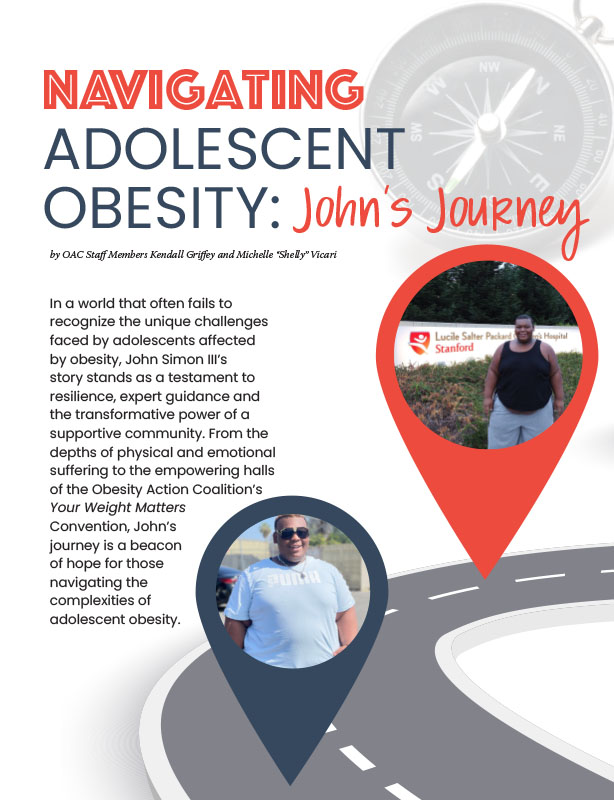On Second Thought


by Lloyd Stegemann, MD, FASMBS
Spring 2010
Your decision to have weight-loss surgery is huge and life-changing. It is expected that there would be some nervousness. Here are some things that might make this time a little easier for you.
So, now you’ve done it! You went to see a bariatric surgeon to help you gain better control of your health through weight-loss surgery. The surgeon saw you and determined you were a good candidate for surgery. You completed all of the tasks necessary for the surgeon and your insurance company and you are now ready for surgery. And then it hits you, “Oh my gosh, I’m having weight-loss surgery!”
Don’t feel alone. That mixture of fear, anxiety and excitement is shared by every patient that has weight-loss surgery. I often tell my patients that their apprehension is normal and if they weren’t nervous, then that would make me nervous!
Preparation before Surgery
This part actually begins before you see your surgeon initially. Prior to seeing a surgeon, find out all you can about the surgeon and the program. Visit their Web site and see what information is provided. Most weight-loss surgery programs offer a free informational seminar to prospective patients to give you a chance to see what their program offers.
There are a number of online forums where you can also learn more about the surgeon, particularly about things like bedside manner, office responsiveness to issues and program philosophy. If the practice has a support group that can be another valuable way to learn about the program.
Once you have chosen your surgeon, have a list of questions ready when you go to the first appointment. If the surgeon is unwilling or unable to answer your questions, you may want to reconsider your choice. If during the process of getting ready for surgery you find the surgeon’s office to be unresponsive or unwilling to work with you, it’s a good sign it will be the same way after surgery. Feeling confident that you chose the right surgeon and the right program goes a long way to relieving those pre-op jitters!
Knowledge Conquers All
Knowing what to expect on the day of surgery will go a LONG way in relieving anxiety. If your program offers a pre-op class, you definitely want to attend. If not, make sure you take a list of questions to ask your surgeon at your pre-op visit. I encourage you to carry a little spiral notebook around once you have been given your surgery date. When you think of a question, write it down because I promise you, you won’t remember it on the day of your pre-op visit.
You will typically be asked to arrive at the hospital one to two hours before your scheduled surgery time. When you arrive, you will go to the admission area where they will need your insurance card and usually a driver’s license in order to get you admitted. After you are admitted, you will likely be taken to a waiting room. If the operating room schedule is on time, you will be taken by a nurse into the pre-op holding area about 30 minutes before your surgery. Usually a family member or friend can go with you into this area. You will be asked to change into a hospital gown.
After this, the nurse will ask you questions regarding your medical history. This is for the hospital’s records. They will also have a consent form that you will be asked to sign that reviews the risks of surgery (which you will have already discussed with your surgeon). They will start an IV and give you any medicines that your surgeon may have ordered.
About 10-15 minutes prior to your procedure, the anesthesiologist will come to visit you. The anesthesiologist will review your paperwork and will probably have a few questions for you. After they have evaluated you they will typically ask the nurse to give you some medicine to help keep you relaxed. For most patients, the last thing they remember is getting the “relaxing medicine” in the pre-op holding area.
From the holding area, you will be taken to the operating room. The anesthesiologist will then give you more medicines and you will “go to sleep.” A breathing tube will be inserted, but you won’t remember this part. Your surgeon will then perform your surgery which generally lasts one to two hours depending on what procedure you are having done.
Once your surgeon is done, the anesthesiologist will wake you up and take you to the recovery room. It’s extremely unlikely that you will remember any of this. In fact, it is not uncommon for, “When is my surgery?,” to be the first question patients ask in the recovery room.
Packing for Your Hospital Stay
Most patients are in the hospital for one to three days after surgery, depending on the procedure. You won’t need to bring much with you to the hospital. Here are some items you may want to consider packing:
- Loose fitting pajamas
- Robe
- Slippers
- Pillow
- Toothbrush
- Personal care products
- Reading material
Returning Home
Adequate preparation can also make your return home from the hospital more relaxed. Most patients will be on liquids in the early period after weight-loss surgery. Make sure you stock up on a wide variety of liquids prior to your surgery. Your program will likely you provide you with a list of “approved” liquids in the early post-op period.
Most surgeons will want you to start your vitamins and minerals once you have returned home, so you should get those prior to surgery as well. You should be able to walk around the house easily after surgery, including going up and down stairs. You may wish to have someone around to help for the first week or so after surgery, but if that isn’t possible you should be able to do almost everything for yourself.
It’s Never Too Late
Keep in mind, that if ever there was an elective procedure, it is weight-loss surgery. If for whatever reason you don’t think it is the right time for you to have surgery or you have a “bad feeling” regarding your surgery, then you should just postpone it. You will do best when you are in the proper state of mind going into surgery.
Undergoing major surgery is certainly stress inducing but by following the recommendations above you can manage that stress effectively. You will find peace in knowing that you made a wise decision in taking control of your health and that you chose your surgery team wisely. Finally, rest assured that the vast majority of people come through weight-loss surgery with few to no complications and the rewards on the other side (no diabetes, no sleep apnea, more energy, etc.) are truly, truly remarkable!
About the Author:
Lloyd Stegemann, MD, FASMBS, is a private practice bariatric surgeon with New Dimensions Weight Loss Surgery in San Antonio, TX. He is the driving force behind the Texas Weight Loss Surgery Summit and the formation of the Texas Association of Bariatric Surgeons. Dr. Stegemann is a member of the American Society for Metabolic and Bariatric Surgery and the OAC National Board of Directors.
by Robyn Pashby, PhD Winter 2024 “No one is ever going to date you if you don’t…
Read Articleby Leslie M. Golden, MD, MPH, ABOM Diplomate Winter 2024 The journey to overcoming obesity is a…
Read Articleby OAC Staff Members Kendall Griffey and Michelle “Shelly” Vicari Winter 2024 In a world that often…
Read Article









